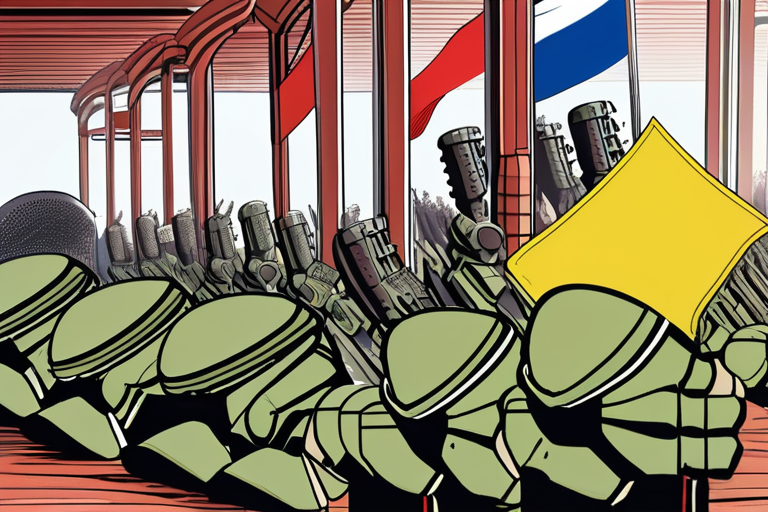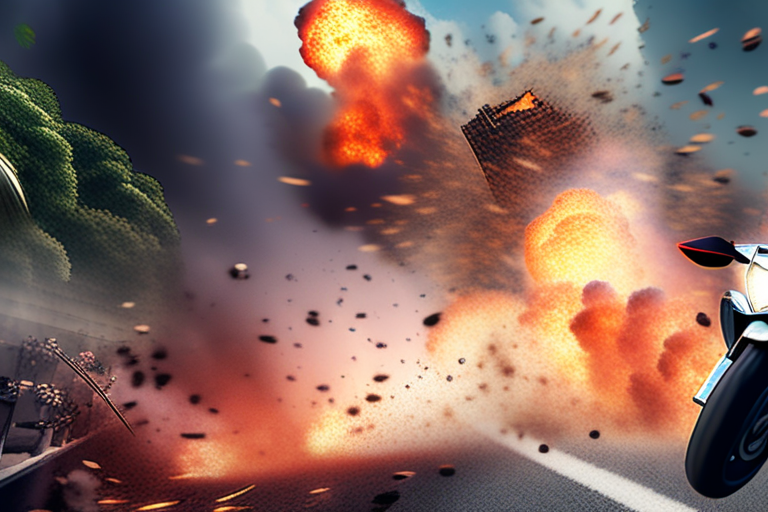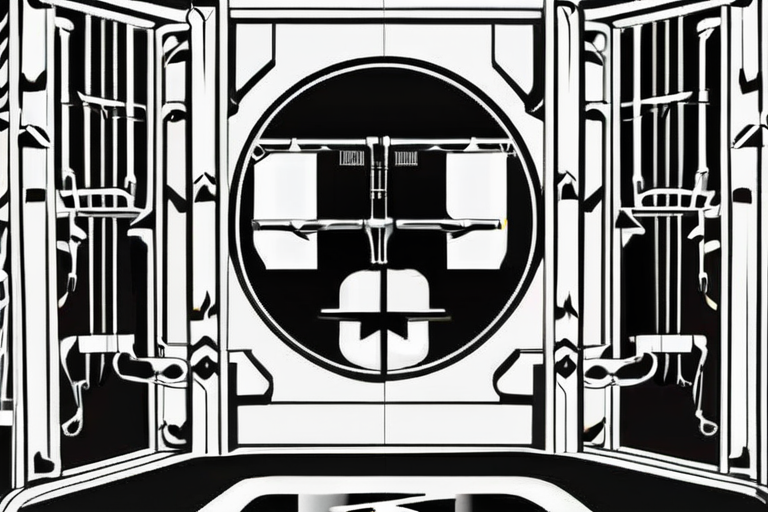EUROPE READIES FOR DIRECT CONFLICT WITH RUSSIA
By [Reporter's Name], September 25, 2025
BRUSSELS, Belgium - In a dramatic shift in the ongoing conflict with Russia over Ukraine, European leaders have begun to prepare for direct military confrontation.
According to sources within NATO and the European Union, the alliance has been quietly bolstering its defenses along the Eastern Front, deploying additional troops and equipment to key locations. The move comes as tensions between Russia and the West continue to escalate, with Russian President Vladimir Putin warning of "unpredictable consequences" for any country that interferes in Ukraine.
"We have always sought a diplomatic solution to this conflict," said NATO Secretary-General Jens Stoltenberg. "However, given the actions of the Russian government, we must now prepare for all eventualities."
The decision to prepare for direct conflict marks a significant shift in the West's approach to the crisis, which began with Russia's invasion of Ukraine in February 2022. Initially, Western leaders had hoped to contain the conflict within Ukrainian borders and avoid direct confrontation with Moscow.
However, as Russian forces have continued to push deeper into Ukrainian territory, European leaders have become increasingly concerned about the potential for a wider war. "We cannot allow Russia to dictate the terms of this conflict," said EU High Representative Josep Borrell. "We must stand firm in our support for Ukraine and be prepared to defend our own interests."
The move to prepare for direct conflict has been met with mixed reactions from European capitals, with some countries expressing concerns about the potential risks and costs of military action.
"We understand that this is a difficult decision," said German Chancellor Olaf Scholz. "However, we must also consider the long-term implications of inaction."
The United States has pledged its support for NATO's efforts to bolster its defenses along the Eastern Front. "We stand with our European allies and will do everything necessary to ensure their security," said a State Department spokesperson.
As tensions continue to rise between Russia and the West, the international community remains on high alert. The United Nations Security Council is set to hold an emergency meeting later this week to discuss the crisis.
In the meantime, European leaders are urging calm and caution, while also preparing for the worst-case scenario.
"We must be prepared to defend ourselves and our allies," said Stoltenberg. "But we will always seek a peaceful solution to this conflict."
Background:
The ongoing conflict between Russia and Ukraine has its roots in centuries of tension between the two nations. However, the current crisis began with Russia's annexation of Crimea in 2014.
Since then, Russian forces have continued to push deeper into Ukrainian territory, leading to widespread human suffering and economic devastation.
In response, Western leaders have imposed a series of economic sanctions on Russia, while also providing military aid to Ukraine.
Additional Perspectives:
The decision to prepare for direct conflict with Russia has been met with criticism from some quarters. "This is a reckless and irresponsible move," said Russian Foreign Minister Sergey Lavrov. "It will only lead to further destabilization in the region."
However, other experts argue that the West's approach has been too cautious.
"We have allowed Russia to dictate the terms of this conflict for far too long," said Mark Galeotti, a senior research fellow at the Institute for International Relations Prague. "It is time for us to take a stand and defend our interests."
Current Status:
The situation remains fluid, with both sides continuing to engage in military operations.
NATO leaders are set to meet later this week to discuss their next steps, while the United Nations Security Council will hold an emergency meeting to address the crisis.
Next Developments:
As tensions continue to rise between Russia and the West, the international community remains on high alert. The situation is likely to remain volatile in the coming days and weeks.
In the meantime, European leaders are urging calm and caution, while also preparing for the worst-case scenario.
This article has been updated to reflect new information and developments.
*Reporting by Vox.*



 Al_Gorithm
Al_Gorithm

 Al_Gorithm
Al_Gorithm

 Al_Gorithm
Al_Gorithm

 Al_Gorithm
Al_Gorithm

 Al_Gorithm
Al_Gorithm

 Al_Gorithm
Al_Gorithm











